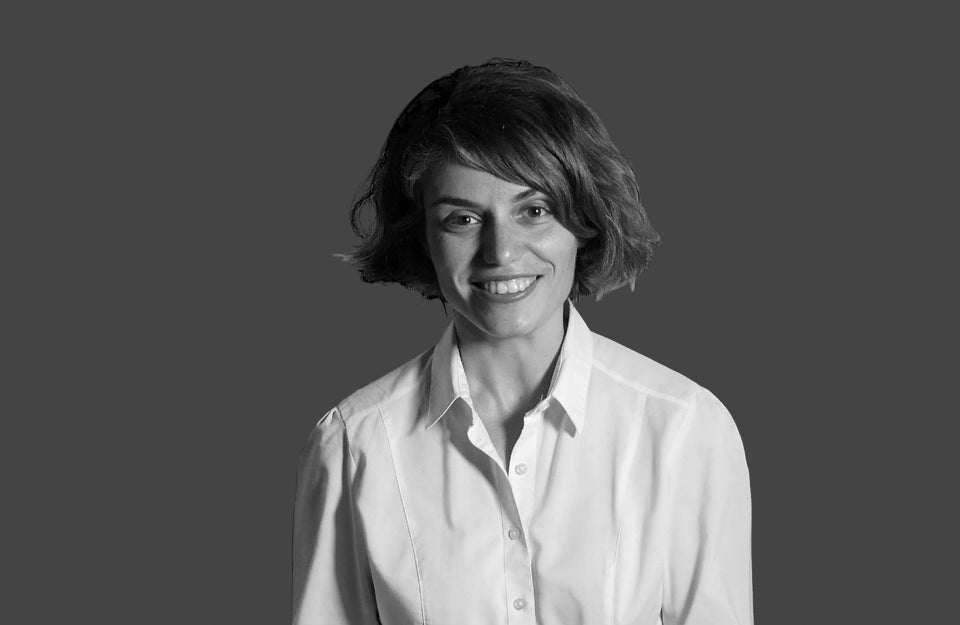The Many Contradictions of China
Former CARGC postdoctoral fellow Maria Repnikova is fascinated by Chinese political communication.

China is often seen as a dark, ideological monolith by outsiders. But Chinese society, and in particular China’s communication sphere, is dynamic, multi-faceted, and filled with contradictions.
These contradictions — like the fusion of free market ideals and a one-party state — fascinate Maria Repnikova, a former postdoctoral fellow with the Center for Advanced Research in Global Communication (CARGC) at the Annenberg School and a global communication scholar. She loves uncovering these frictions and writing about them for different audiences.
Now an Assistant Professor of Global Communication at Georgia State University, Repnikova first developed an interest in studying communication in China while pursuing her master’s degree at Oxford University. There, she conducted a study on the role of ideology in China’s journalism education, and a scholarly interest was born.
“I see myself as a scholar of global communication, with a regional focus on China,” she says. “I examine political communication by different actors in China — from those operating on the margins, like critical journalists, to major cultural communication agents branding China’s image internationally.”
But Repnikova didn’t always consider herself a global communication researcher. Her background is in political science — she has a doctorate in politics from Oxford University, where she was a Rhodes Scholar — but she eventually found herself having trouble making sense of the things she was studying through that lens alone. She says political binaries, like autocracy versus democracy or liberalism versus illiberalism, were limiting her work.
Then, she found CARGC and discovered the opportunities available to her by viewing her work through the lens of global communication.
“My time at CARGC was transformative for my scholarship and academic career,” says Repnikova. “Annenberg opened me up to the field of global communication studies, including cultural theories on resistance and imperialism. And I found great mentors in Marwan Kraidy, Guobin Yang, and Michael Delli Carpini.”
While at CARGC, Repnikova revised her first book Media Politics in China: Improvising Power Under Authoritarianism (Cambridge University Press 2017), and she began collaborating on research with then-student, now alumnus, Kecheng Fang (Ph.D. ’19). The pair has published three journal articles, with a fourth currently in the works.
“Maria set a gold standard for what being a CARGC postdoctoral fellow means,” says Kraidy, who is the Director of CARGC and the Anthony Shadid Chair in Global Media, Politics & Culture. “An astute, sophisticated, and ambitious scholar, she is also a fabulous colleague: supportive, collegial, and generous.”
Currently working on her second book, Repnikova is investigating China’s imagination of itself as a global cultural power. She’s studying how China deploys various channels — cultural institutes, state-sponsored media, elite trainings — to charm global audiences. She’s already conducted five months of fieldwork in Ethiopia, examining China’s activities there, and she spent this summer conducting fieldwork in China, delving into the Chinese perspective. She’s studying China’s image-building activities and speaking to journalists and other cultural experts.
“Since her CARGC fellowship, Maria has been one of a handful of scholars redefining global and comparative media research, and bringing geopolitics and culture back to the center of global communication scholarship,” Kraidy says. “Maria’s career so far demonstrates the spectacular pay-off of CARGC’s core focus on emerging scholars, and the center’s role as a catalyst for new and distinctive voices.”
Repnikova is the recipient of over 20 fellowships, grants, and awards, including the 2019 International Journal of Press and Politics Best Book of the Year Award, announced at the International Communication Association meeting. She has published more than 20 journal articles and research reports and is often quoted in popular media outlets, like the BBC, Al Jazeera, and the Washington Post. She is fluent in Chinese (Mandarin), English, Latvian, Russian, and Spanish.



